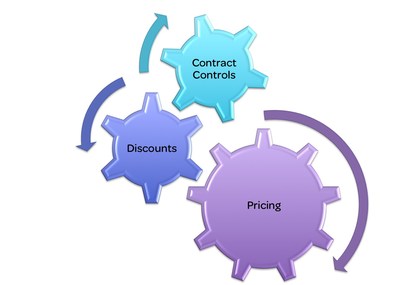TMCnet News
Automation Without Process Engineering is not UncommonSAN FRANCISCO, July 10, 2017 /PRNewswire/ -- All organizations want to reduce manual processes to prevent error and reduce cost. CRM: Sales, Service and Marketing, SRMTM: Quoting, Order Management, Subscription management, Billing, Payments and Collections, or other central operational tasks, all face challenges of not having a process in place they can automate.
Automation and Process Engineering are a cart vs horse discussion. Before approaching software as a solution to an automation issue, take a deeper look at the business process itself. Is this business process one that lends itself to automation or will automation take away the necessary controls to run things with the flexibility needed to meet subscriber/customer needs. A major factor in establishing a process is first identifying missing controls. Example: A router that is rented monthly becomes a completely new SKU than one that is rented annually or one that is a pay by usage. One router can become ten listings. We needed to discuss a lack of a pricing model. Why would that impact collections? Without a standard model to track bill cycles and prices, you can't cancel a discount The threat of a price hike for cause seems to ring louder than a reminder letter. Without a payment calendar template, there can't be a revenue projection, dunning campaigns triggered by client revenue values, or "at risk client" discussions. Had the company established a pricing, discounting and approval routing model, then they could've defined the product core value indicators and sent regular value statements to the clients, which would then remind the clients between invoices what value was brought and improve collecting payments on time. Net statement? Standards lead to automation, preventing customers from questioning the value of the service. People pay quicker for things they like. Automation comes from defined standards. Do you have a cost basis, a limited number of operational steps or fulfillment activities, a standardized message you want and give for customer satisfaction checking, a standardized business operation? Until the standard is established, automation is not a solution but more an expensive way to bail water (a false success). Essentially, if I do X, can I automate an outbound communication? The answer is always yes. Ask what you want to accomplish by sending it and what action you'd like the recipient to do (buy more, pay quicker, etc.). Without an overall goal of why you're automating an event, removing the manual process doesn't solve anything. If the purpose of sending the automated message is to notify subscribers of an order status, think about what the subscriber will do with the info and how you can infuse it with a benefit statement. This is what is meant by a well thought-out business process design. With the growth of AI and machine learning, we're getting to the stage where voice commands can take over the activities of call center agents. These are initiation action triggers for keyboard strokes. At best, they become powerful when they stream together and continue automated operations. Asking your Amazon Echo what the temperature is outside isn't worthwhile if it doesn't also recommend which clothes to wear, remind you to take your umbrella and use a better route to work. If I solve the questions I'm being asked without diving deeper into why the issues exists, I'm ignoring the potential of solving the overall challenges my customers truly face. Invest time in process engineering and save in automation expense. The result is a semi-automated business process that can be interacted with, not just depended on; an overall more stable, cost-effective, scalable and growth-oriented operation. ~ Adam Kleinberg, CEO of ChikPea, Inc. ChikPea is the first SRM solution suite on the Salesforce platform. Company: ChikPea Inc.
View original content with multimedia:http://www.prnewswire.com/news-releases/automation-without-process-engineering-is-not-uncommon-300485393.html SOURCE ChikPea Inc. 
|


